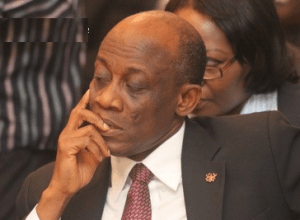Citizens must track the 2016 budget for accountability and transparency

For a large number of the Ghanaian population, the annual ritual of hearing the budget presented to Parliament is as old as the hills, for the simple reason that not much changes – there is slow development, and not much that one can feel. Indeed, there was a time when immediately after the budget was read, prices skyrocketed the following day! The budget was practically price hikes! That has changed though, since the country adopted multiparty democracy.
While many citizens are occupied with their own businesses, trying to eke out a living, they seem to have developed apathy to a budget that affects them regardless, perpetuating the cycle of detachment that makes most citizens uninterested in how the budget is implemented.
While we may all have varying levels of skill in budget tracking – from the policy analysts in higher education institutions, think tanks and civil society organizations, to the media and to the common man on the street – a lot can be done with interest and desire.
Keeping an eye on the 2016 budget can bring results.
Thankfully, the number of “accountability solders” seems to be growing with Ghana’s attainment of middle income status and especially with the commencement of oil and gas production.
That culture needs to grow more as donor funding is dwindling and government is now on the verge of generating some more revenue from domestic taxation, with some of the progress made in cleaning up the wage bill, and from withdrawal of financial support to some state departments and agencies that have been identified to be capable of operating without government subvention. The decision to remove subsidies from these agencies though raises more questions that require further enquiry and discussions.
The revenue that would be saved from these actions belongs to Ghanaians in whose interest it is to take note of projects and to keep their eyes on their implementation.
As one renowned Ghanaian lawyer remarked recently, we need to move from earmarking revenues, to ‘eyemarking’.
In the 2016 budget, government for instance claims that some communities, known otherwise to be in want, received funding and educational supplies.
It will be recalled that Mrs Matilda Amissah-Arthur, wife of the Vice President, generated some controversy in mid-July when she blatantly turned down and scolded one headmistress for requesting that chalk should be supplied to her school.
Meanwhile, an analyst at the Institute for Fiscal Policy, a civil society organisation, says Ghana spends a lot more, relative to neighbouring countries, on education but with less than proportionate outcomes, indicative of “a fundamental problem between input on one hand and output and outcomes on the other hand.”
Prior to presentation of the budget, the Institute had advocated a public expenditure tracking survey to ensure that government’s spending in education reflects high performance, and an output-based compensation system: in order words teachers’ salaries should be determined by what they teach, how well they teach it, and the performances of their students.
For example, wages and salaries usually constitute the bulk of government’s spending in education. Of about GH¢7.553 billion allocated to education in 2016, compensation constitutes GH¢4.878 billion.
A Deputy Minister of Finance, Cassiel Ato Forson told journalists at a Post-Budget Forum in Accra last week that the government would not borrow to pay for debts in 2016.
The government has indicated it would pursue fiscal consolidation and prudent management of the economy.
Presenting the budget in Parliament, the Minister of Finance, Seth Terkper said, “The vision and commitment of Government over the medium term is to build a sustainable, prosperous and equitable society, in line with our social democratic agenda. This vision is anchored on the thematic areas of the Ghana Shared Growth and Development Agenda (GSGDA) II, 2014-2017 and, particularly, on the Government’s priority of:
- Putting People First;
- Building a Strong and Resilient Economy;
- Expanding Infrastructure; and
- Ensuring Transparent and Accountable Governance.”
The ideals and goals as past experiences have shown would not be achieved if things are left solely in the hands of politicians and civil servants. Citizens must show interest and actively participate in tracking the budget’s implementation.
Students and teachers can for instance keep an eye on the education budget, while medical professionals keep a watch on the health budget.
Investments in agriculture are known to hold potential to transform the economy, but the slow pace of investments haven’t achieved as much as could be attained.
In the last three years Ghana lost more than $3 billion in revenues as a result of the falling prices of commodities on the world market. The country lost more than $2 billion to the fall in the price of gold and $1 billion to the fall in the price of cocoa. Meanwhile, the COCOBOD has contracted a $1.8 billion loan to purchase cocoa.
Having a government that is transparent and accountable in its actions does not come about by chance. It requires conscious efforts at demanding that a government acts according to law.
To avoid a repetition of past illegal and unethical conduct of politicians and civil servants in administering past budget allocations, it is important to keep a keen eye on the 2016 budget from disbursement to actual spending of the funds.
It is only when there is active monitoring and tracking that accountability and transparency can be achieved.
By Emmanuel K. Dogbevi & Emmanuel Odonkor
